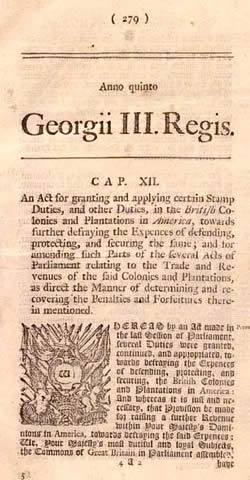

The Pack contains associated resources for the learning experience, typically in the form of articles and videos. There is a teacher Pack (with only teacher information) and a student Pack (which contains only student information). As a teacher, you can toggle between both to see everything.
Here are the teacher pack items for New Taxes in the Colonies :


Overview In this experience, students learn about new taxes and laws the British imposed on the American colonies after the French and Indian War. They explain why the laws were passed, why the colonists objected to them, and how the colonists protested. Objectives:
In this experience, you’ll learn about different taxes and laws the British imposed on the American colonies after the French and Indian War—and how the colonists responded.
Objectives:

You may want to review the meaning and connection between “debt” and “taxes” with students:
In a word or short phrase, name a way that citizens can protest against taxes.
